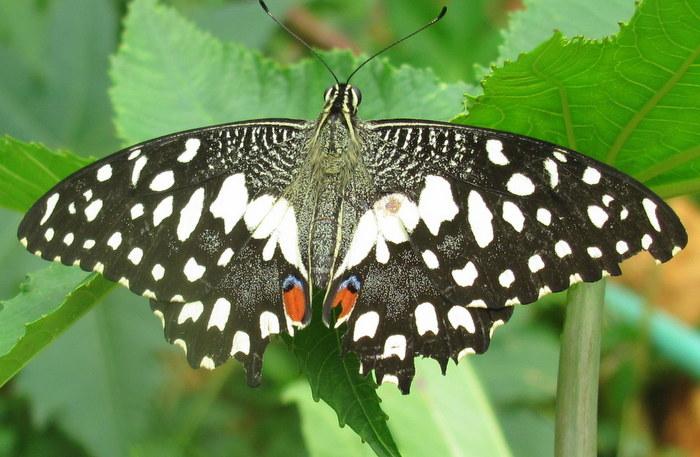Gardening: Moving pageant in your garden

PHUKET: We all know how denuded of mammals Thailand is. Most have long since been hunted down for food. And while the same is not true of most insects or reptiles, it is still the case that anything remotely edible will probably end up fried or barbecued on someone’s dinner plate.
Insects, such as water scorpions, crickets and locusts, tokay geckos and agamid lizards, even some snakes, are part of the national obsession with food. “If it moves, kill it and eat it” is a principle most of rural Thailand observes.
Luckily, butterflies are an exception – at least as far as this commentator is aware. While it may have something to do with the creepy crawly caterpillars from which butterflies metamorphose – and many of these are poisonous or can create painful rashes if handled – I suspect it is because there is so little protein in an adult butterfly.
My garden, where I have counted more than forty species, is testimony to the fact that the Kingdom teems with these beautiful and fragile creatures. In fact, there are no fewer than 1100 recorded species. Butterfly watching is becoming increasingly popular as an activity, while butterfly farms have been established nationwide.
What people tend to forget though is that butterflies are important pollinators. Of course they are only seeking food in the form of nectar, but incidentally they are helping plants to reproduce. More than 90 per cent of all plants need a pollinator to set fruit and seeds.
While bees buzz their way from flower to flower, butterflies glide and flit in what seems a much more random fashion. Because they have long legs and a coiled extensible proboscis, they tend to perch on blooms with a landing platform and collect less pollen on their bodies than bees. But they possess a better color perception and can even detect ultra-violet light.
As bees decline catastrophically – they are victims of pesticides, mites and a global pandemic called colony collapse syndrome – butterflies will assume an ever-greater significance in crop production.
As responsible gardeners, we should assist Mother Nature by encouraging them. One way is by cultivating a butterfly friendly garden replete with the kind of nectar-rich plants that attract butterflies. Buddleias are especial favorites, but many annuals such as brightly hued zinnias, marigolds, sunflowers and daisies as well as lantanas, bauhinias, ixoras and coneflowers are popular.
And though we may not enjoy the sight of caterpillars munching away at our prized plants, it is unlikely that any damage will be permanent. Probably the most important host shrub for this purpose is calotropis (Indian milkweed). An interesting and durable shrub in its own right and found everywhere in Phuket, its grey-green leaves is the sole food of the monarch and queen butterfly larvae. Moreover, the distinctive and fragrant clusters of white or mauve florets are rich in nectar and attract not only adult monarchs but other species as well.
Passion vines, ruellias, sunflowers, asters, hamelias (firebush), custard apples, and verbenas are visited by a range of butterflies including zebras for the purpose of laying eggs. My orange jasmine hosts the larvae of swallowtails, while the jatropha attracts caterpillars of zebras and julias.
Call me crazy, but I am willing to pay the price of lost leaves for the moving pageant that is a butterfly garden.
If you have gardening or environmental concerns, contact Patrick at drpaccampbell @gmail.com. Many of his creative and academic publications can be found at his website: Green galoshes WordPress.
— Patrick Campbell
Latest Thailand News
Follow The Thaiger on Google News:


























